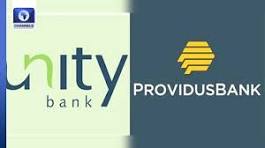CBN MPC Raises MPR by 150bps to 26.25% as Analysts Examine Implication for Economy

At the end of its 295th two-day monetary policy committee meeting in Abuja, the Central Bank of Nigeria (CBN) raised the monetary policy rate (MPR) by 150 basis points to 26.25% from 24.75%.
It retained the other parameters: 45% cash Reserve Ratio (CRR), 30% liquidity ratio (LR), and an asymmetrical corridor of +100 and -300 basis points around the MPR.
Analysts gave different views about the outcome of the CBN’s policy decision and were concerned about its impact on economic growth and employment as finance costs of companies are likely to rise further.
Dr. Boniface Chizea an economist, noted that this is the highest rate hike in decades, with likely adverse consequences on households, businesses, and the economy alike.
He believed that the hike would attract more foreign portfolio investments but noted that the economy needs an increase in foreign reserves and dollar liquidity.
“The banks will remain constrained in their capacity to support the real sector, with the cash reserve ratio retained at 45%, while businesses with loan obligations will face challenges with the hike in the interest rate leading to higher borrowing costs.”
According to Professor Uche Uwaleke, the Director of the Institute of Capital Market Studies, Nasarawa State University, “The hike in the MPR by a further 150bps will most likely have an adverse effect on the equities market given the inverse relationship between interest rates and equity market returns.”
He observed that, “It can trigger portfolio rebalancing in favour of fixed-income securities. If I were a member of the MPC, I would have voted for a hold position as the aggressive policy rate hike is taking a toll on output. Production is stifled because of the very high cost of funds. Moreover, the seeming over-reliance on the MPR as a tool to tame inflation does not appear to be making any meaningful impact due to the significant non-monetary factors driving inflation in Nigeria, such as the high cost of energy, transportation, and insecurity in the country’s food belt.”
In his opinion. Mr. David Adonri, a lead Stockbroker with HighCap Securities, believed that the recent rate hike would cause migration from the equity to debt market. Consequently, the equity market would decline.
Another financial market operator, Mr Oladipo Ajayi, Head of Fixed Income Desk, Chapel Hill Denham, observed that rate hike, ‘Means a rise in yields, and ia fall in equity values. We expect interest rates to rise at the short end of the market, most especially for treasury bills. The hike is hawkish and, will push yields north.’
‘The solace for the government is that they have limited volume to cover for the remainder of the year based on information from the DMO’s DG. This could be the only hindrance to yields moving up by 150bps,’ he added.
Proshare analysts had projected that the naira would appreciate after the rate hike in March 2024; the analysts also stated in the Proshare March 2024 Inflation commentary that even though the naira would appreciate, the appreciation alone would not be enough to curb inflation and households would continue to face sticky price increases in the coming months.
“Inflation rose in April 2024 to 33.69%. The current 150 bps hike would see the naira appreciating to between N1,300/US$ and N1,400/US$, as the increase has a marginal impact on capital flows. Households, however, will continue to face the challenge of higher costs. The over 20% appreciation in the naira seen in April showed how appreciation could affect prices.”
According to the analysts, households will be confronted with the challenge of high inflation, which would erode purchasing power as real wages fall.
Considering the outlook for May 2024 inflation, analysts note that the moderation witnessed in April’s headline inflation would disappear when the National Bureau of Statistics (NBS) releases May inflation figures




